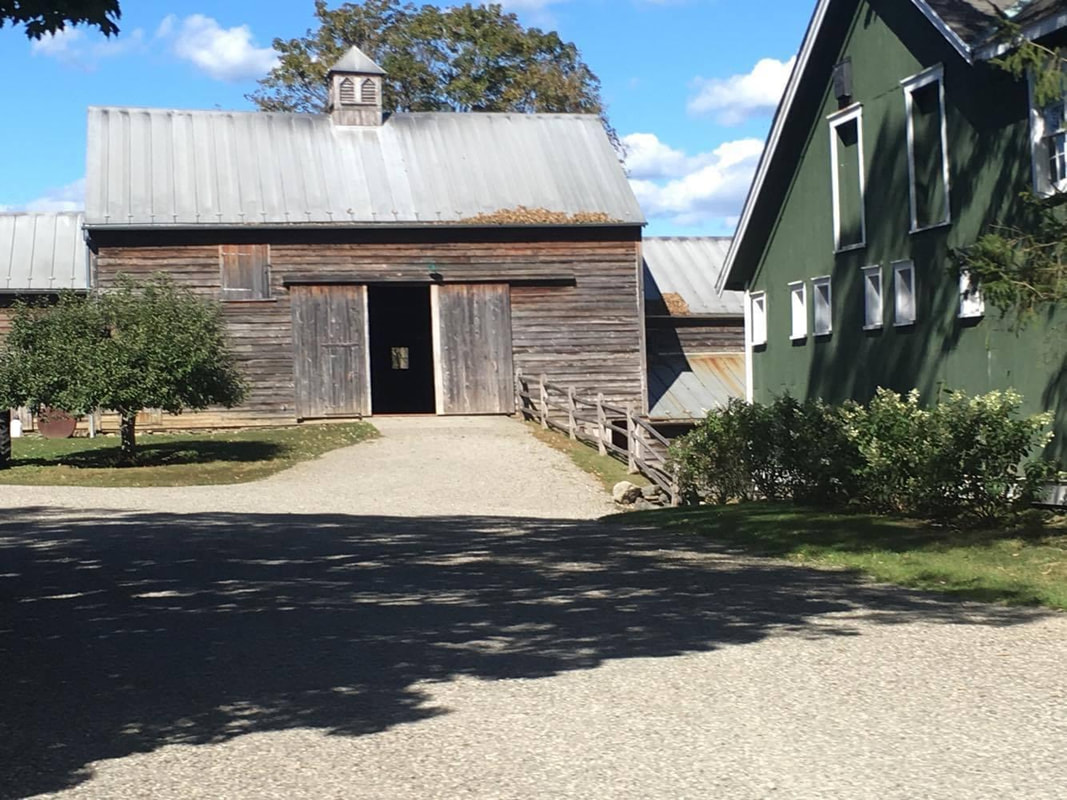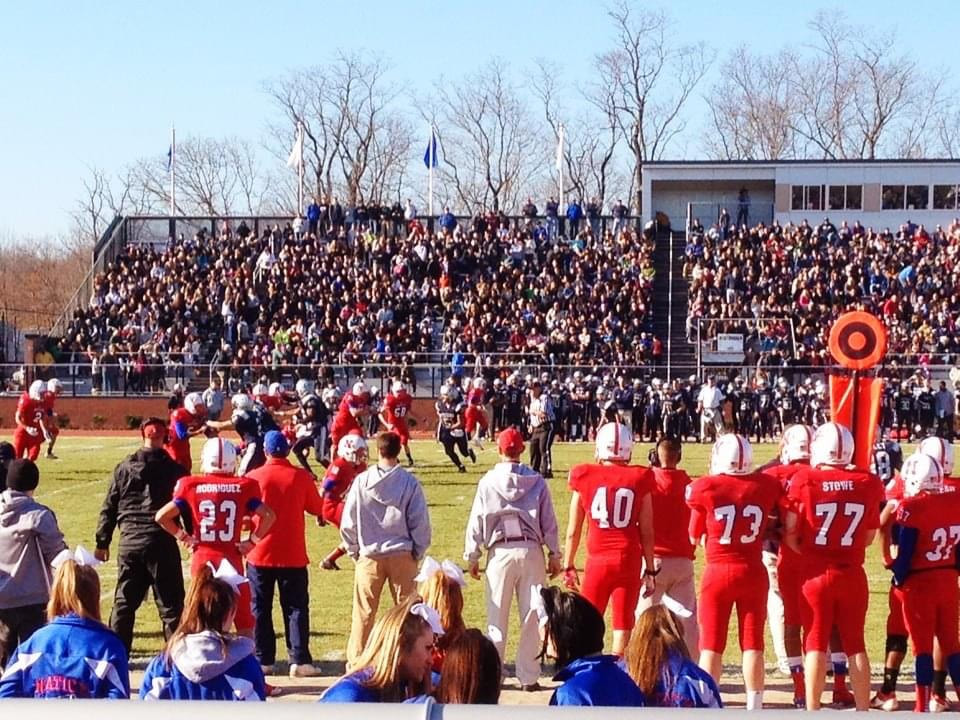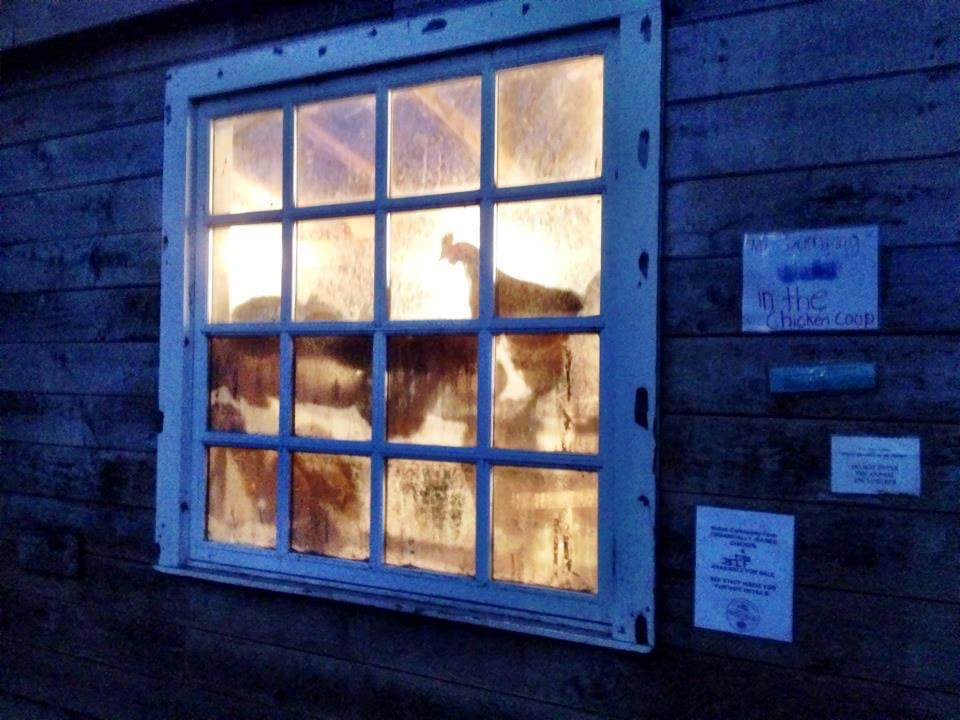|
This morning I started my pies. You probably know why. Tomorrow is Thanksgiving and there is lots to do. We have hosted for years and--as the primary-but-no-longer-sole cook--I have a system. With certain exceptions, the preparation for the meal goes in reverse order of consumption, which means desert first. Anyway, my son--who will be ultimately responsible for this dish--brought home a splendid butternut squash and some sweet potatoes from the farm where he works. My task this morning was to reduce them to a puree for later assembly. I have the Christmas music on. It's somebody's attempt to reconstruct the Grant's Department Store albums on Spotify. I am mindful of the peeling and the roasting. I am making a list of things we forgot to get in the first (and second and third) run to the grocery store. Johnny Mathis is singing O Holy Night. I am inhabiting the holidays...yet I am also not. I am not entirely feeling festive this year. You see, it is a dark time in the world and it seems weird in some way to be grateful when so much is going to Hell in a hand basket. The holidays are like that. Even in times that seem somewhat better than this one, there is conflict. There is pain. There is the fact that not everything works out the way we would hope. Thanksgiving was the big holiday in my family of origin. It is built into me to be a "Thanksgiving person" like some are "Christmas People" or Halloween people". It is my personal high holy day, regardless of the ambiguity. It was also something we faced with seriousness and intention every year. Christmas and other holidays were an afterthought compared to Thanksgiving. There certainly was a good way to celebrate it which, of course, was our way. As a child visiting my grandparents, every year the various activities were exactly the same as the year before. My grandfather, who fought in the Second World War and spent two years in a German prison camp, made sure that it all went off with precision. The morning started with farm-chores. Then there was the obligatory family football game. Then we would get all dressed up--we boys wore blazers and ties--and filed into the large dining room that was only used for special days. Then we would sit in our assigned seats. Each seat was the same each year unless a new addition set the chart in disarray. The food...it was the same to. There was never a variation to the menu, from the enormous turkey that my aunt and mother would cook to the tomato aspic they let my grandmother prepare so that she would stay out of the way. It was–-and still is…if somewhat reformed–-a ritualistic day leading toward a ritual meal. It is, for many people, like a Communion Sunday at church. Like at church, there is an element of worshipfulness. There is the air of the sacred though we may not know why. Nan Merrill, who is one of my favorite liturgical poets, writes in her Mandalas and Meditations, "Who will open their hearts to the/blessings of love? Who will surrender their lives/to be guided by the spirit? Who will invite the Most Holy into/the heart's abode? These are the sorts of question we ask ourselves, or we are encouraged to ask during this season. Regardless of what holiday floats our boat, when the moment comes, we try to turn away from our regular tasks and challenges. Our goal is to love and be loved; to let in "the Divine" whatever that means to us. Of course, when we look up from our mundane activities, we don't really let them go entirely. We are human beings, and we make sense of our world through stories. Some of these stories are small and personal. Others are set in the larger context of society or the environment. However, each story comes with its ups and downs. Each story comes with risks. The reason is simple. Stories have different interpretations and different points of view, so conflict is inevitable for most of us during this time. The classic is the Thanksgiving table battle with Uncle Bert or whatever. Realistically, it can happen at any time when we are trying so hard to get along. In fact, when I look back fondly on those childhood holidays with my grandparents, I wonder if their regimented nature had something to do with those differences of opinion. Time, distance, and marriage had set every faction in our extended family on different trajectories. My funky northern liberal parents didn't always strike the right chord as some of the more staid and conservative--and also beloved--relations. The same could be said going the other way. Again, we were trying but sometimes we were also trying if you get my drift. Now, my family is not atypical. These experiences of real conflict and tension tempt us every year. After all, everyone knows what is going on as we gather around the table. This year there are wars in Ukraine and the middle east that have generated strong opinions and feelings. They have had repercussions for many people at home with the rise of antisemitism and hatred of Muslims. There is hunger and fear outside the walls of our relatively tidy holiday-houses as well. The gap between rich and poor grows. Our own democratic institutions seem weaker than at any time in our memory. There are a plethora of personal battles being fought within each of us every day. In other words, there are storms brewing. We shouldn’t be surprised when the chaos slips on into our carefully created rituals of the season. Which means that each year we attempt to hold these things--the good and the bad--in tension. At least we should do this, in our own way. Otherwise our gratitude is empty. There is darkness that needs acknowledgement for Thanksgiving to make any sense. When we think of a time where gratitude abounds, we consider the unambiguously happy moments, like weddings. However, we also think of funerals. I have officiated a number of them lately. There by the graveside we struggle to hold on to a memory. Still, we also tell a story of gratitude in the midst of sadness and unfinished business. It is in these moments where we hold things in the balance. It is in these moments when we are being the most authentic humans we can be. Now, there is actually a way to celebrate what we have and to mourn what is missing at the same time. It takes courage, like so many things, but it's worth trying. An act of thanks in a time of oppression and evil--in a time of crises and conflict--is an act of resistance. It is a moment where we contemplate the vastness and decide that "the Man"--those principalities and powers of our society--isn't going to get us this time. We are stating that in the midst of struggles--whatever they may be--we will be broad-minded and open-hearted against the forces of fearful self-interest.
There is strength in looking at the vastness. There is strength in prayer, which is really what we are talking about. There is strength in understanding our role as part of the ecosystem writ large. This practice encourages us to set aside our own issues. Nan Merrill's translation of Psalm 146 tell us to "Put not your trust in riches, in illusory things that fade away. For when our day comes to depart this world, at that very time, we carry only the love imprinted on our soul." That is what all this holiday-making--all this risk taking--is about. Or, at least, that is the goal. It requires some practice. It also requires some higher order thinking to say “yes, I am grateful…but”. We are grateful but…not all is right in the world. Not all is right in our lives. We are grateful but…when we look over this broken earth, the blessings are imbalanced. Though we may be pleased with what we have, we see that there is work to be done. This “yes, but” is as much a “yes and” approach familiar to anyone who has ever done improv. For in our gratitude, we are motivated to action. This is an essential element of the move, actually. So many people want to escape during the holidays. So many center their own narrative and miss the opportunity to reach out. Thanksgiving in particular is susceptible to this. As is perhaps inevitable in a secular holiday with a religious theme, our “attitude of gratitude” has too often been an act of self-congratulation masquerading as humility. For example, as children we learned the holiday’s creation myth--all that stuff about the Pilgrims and the Native-Americans gathering together in peace--as history. At best it is a white-washed mashup of complex events in the midst of a clash of cultures. That “First Thanksgiving” myth was--and still is--used to prop a distinctly American theology. It is used to privilege and elevate the story of European Americans and legitimate colonialism in the so-called “New” World. Now, theoretically, we know better. Still, we feel the impact of this story and of how we learned it every day. Here is another example. It is also hard not to veer into self-congratulation in a celebration of the ability to lay out a table of more food than we can eat. When we do this, we are celebrating our riches in gratitude for a harvest that we did not bring about. We celebrate our ability to store up food for a winter that–thanks to the trappings of our suburban society–will not be a time of scarcity for most of us, after all. We don’t want to be like that. We also know that we don’t have to be. There is a way--through honest prayer--to be grateful and still acknowledge the depth of pain in the world, in our bodies, and in our hearts. There is a way to atone, somewhat, and commit to the struggle. There is a way to bring about a better life and a better world that we can celebrate next holiday season. Every year I share a prayer by Theodore Parker with the church. It is called "Trials". It may not be the best prayer ever–At least artistically–but it is an authentic one. Parker was a transcendentalist, and a Unitarian minister who was ostracized by his fellow Unitarian clergy because of his radicalism. He had personal struggles, too. Many of those struggles had to do with his health. He died young at 50 years of age, right before the Civil War. In this prayer he mixed his gratefulness with the reality of his situation, facing imperfection and acknowledging responsibility. In it he speaks into where he feels he has failed. He notes the suffering he has endured but…he still ends in thanks. He still finds reasons for gratitude. For all the trials of my earlier day I thank thee that they all have been That darkness lay about the rugged way Which I must tread alone. For all I’ve seen Of disappointment, sorrow, pain, and loss I thank thee for them all. And did I sin, I grieve not I’ve been tried; for e’en the cross Of penitience has taught me how to win. Yet of ills as child or man I’ve borne-- My hopes laid waste, or friends sent off by death,-- Remorse has most of all my boson torn For time misspent ill deeds or evil breath. But yet, for every grief my heart has worn, God I thank thee still, trusting with a hearty faith. So that is where we are this year. In a world of trouble and pain. We live in a world in need of our humility and our strength. We live in a world in need of our joy and our gratitude. We need to give these things even in the face of all that has happened and all that will happen in the quest for the just and peaceful Kin-dom. Today, I am done with the squash. I have the turducken almost thawed out. I am making plans in future days to eat both of these dishes and more besides until they are gone. We will not wear ties to dinner tomorrow. Things will be more casual. Maybe--for a little while--we might talk about religion and politics until we can't deal anymore. Then next week, having been grateful for the many things we should be grateful for and having acknowledged the hard truths--or as many as we can--we will turn back to the dream of making a better world. After all, we will have Advent to remind us, right? May we see the imperfect world and resist despair by giving thanks for the victories, the love, and the tools for the new journey that empower us to good work and enable us to move forward once again.
0 Comments
Leave a Reply. |
Adam Tierney-EliotI am a full-time pastor in a small, progressive church in Massachusetts. This blog is about the non-church things I do to find spiritual sustenance. Archives
June 2024
Categories
All
|



 RSS Feed
RSS Feed